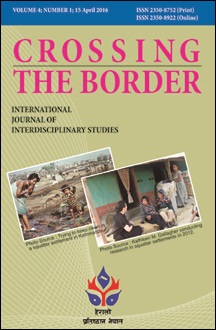Spying - An Ethical Profession
DOI:
https://doi.org/10.3126/ctbijis.v4i1.18428Keywords:
Spying, consequentialist, utilitarian, morality, intelligenceAbstract
In this essay, I will discuss the ethics and morality of spying. I will examine the dilemmas facing governments who choose to cross moral boundaries for the sake of national security. In discussing the morality of spying I will justify spying from a consequentialist and utilitarian perspective. The spy-game stretches the moral boundaries and the end often justifies the means. An example of this dilemma would be torturing a suspect to save a large number of people. Events involving the assassination of Hamas leader Mahmoud al- Mabhouh made headlines worldwide and prompted this discussion. The question asked is how far can intelligence agencies stretch these boundaries?
Crossing the Border: International Journal of Interdisciplinary Studies Vol.4(1) 2016: 39-44

